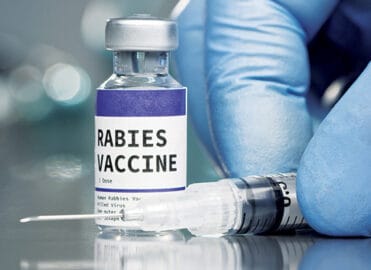Ottawa County identifies first rabid bat of 2025; health officials urge caution
The Ottawa County Department of Public Health announced Friday the first animal rabies case of 2025 in the county after a bat tested positive for the deadly disease.

HOLLAND — The Ottawa County Department of Public Health announced Friday the first animal rabies case of 2025 in the county after a bat tested positive for the deadly disease.
No humans have contracted rabies in connection with this case.
The bat, recently sent to the state lab from Ottawa County, confirmed positive for rabies, according to the OCDPH. Public health officials emphasize that the risk of exposure to rabid bats is higher from May through September, when bats are more active. Residents are urged to take precautions to protect themselves, their families and their pets.
As of July 17, Michigan has reported 16 cases of rabies in animals statewide.
The 2025 case follows a year in which Ottawa County reported three animal rabies cases in 2024. No rabies cases in animals or humans were reported in the county during 2023.
Rabies is a fatal disease once symptoms appear, but it is preventable. People and pets typically contract rabies through bites or scratches from infected animals.
According to a press release, the OCDPH advises particular caution if a bat is found in a room with people who have been asleep, or with an unattended child or adult who cannot clearly communicate and may not be sure of contact with the bat. In such instances, collecting the bat for testing is crucial. Post-exposure treatment is recommended for individuals potentially exposed, but it is not necessary if the animal tests negative, according to the county.
To protect against rabies, the OCDPH recommends these steps:
- Never touch or handle bats or other wild animals. Do not keep wild animals as pets or attempt to rehabilitate them, as they can carry rabies without appearing sick.
- Seek immediate medical attention if bitten or scratched by an animal.
- If a bat is found in your home, do not release or dispose of it. Safely confine or collect the bat if possible and contact OCDPH at 616-396-5266 to determine if testing is needed. If collection is not possible, contact a pest control company. Animals requiring testing can be brought to Harbor Humane Society at 616-399-2119 or harborhumane.org. Resources on safe bat collection are available.
- Vaccinate pets against rabies. Even indoor cats can encounter bats that get inside homes.
- If a pet is bitten or scratched by a wild animal, or if unsupervised contact is suspected, contact a veterinarian immediately. Additional actions may be necessary even for vaccinated pets. If possible, safely confine or capture the wild animal without touching it for potential testing.
Additional resources are available from the Centers for Disease Control and Prevention and the Michigan Department of Health and Human Services. The Ottawa County Department of Public Health can be followed on Facebook (@miOttawaHealth), X (@miOCDPH) or Instagram (@miOCDPH) for updates.
— Heather VanDyke covers northern Ottawa County for the Ottawa News Network. Contact her at newsroom@ottawanewsnetwork.org.




